Considering how stressed everyone is, demand for massages should be through the roof — but, of course, it’s not. Instead, precautions to stem the spread of COVID-19 have hit massage businesses very hard. Public health measures compelled spa and clinic owners across the U.S. to shut down their businesses. Recently, several states have eased restrictions to allow massage businesses to reopen.
While each state has its own rules for how to safely operate a massage business during the pandemic, these guidelines are universal.
Masks are your first line of defense
Probably the single most important fact to know about COVID-19 is that it’s transmitted primarily through the air. When an infected person sneezes, coughs, laughs, sings, or simply exhales, they emit minute particles containing the virus. The heaviest of these particles (which are invisible to the naked eye) quickly fall to nearby surfaces, but very small particles can remain airborne for up to three hours. This is why wearing a mask is the most effective way to stop the spread of the virus.
How effective are masks? An unintended real-life experiment revealed that masks are extremely effective.
The state of Missouri allowed hair salons and barbershops to reopen in May but only with stringent requirements that both stylists and customers wear masks or cloth face coverings. Two stylists who had very mild COVID-19 symptoms worked on a combined 139 customers before they were diagnosed. Remarkably, none of their clients or any of the other stylists in the shop became infected. Masks entirely averted what could have been a disastrous COVID-19 outbreak.
Follow-up interviews by public health workers investigating the Missouri hair salon incident found that most customers wore simple cloth masks. Even a homemade cloth mask is vastly better than no mask.
Massage businesses are just as “high touch” as hair salons. There’s no such thing as a socially distanced massage. Requiring both staff and clients to wear masks is an indispensable precaution that has proven to be highly effective for stemming the spread of the pandemic.
Take cleanliness to the next level
Cleanliness is necessary for operating a successful massage business. Customers wouldn’t stand for anything less. However, the level of cleanliness that was routine prior to the pandemic is no longer sufficient. It’s now necessary to routinely disinfect, not just clean, facilities.
As noted above, the virus that causes COVID-19 spreads primarily through airborne particles. However, the heavier particles that infected people exhale quickly descend to surfaces. These particles can remain alive for hours or even days, depending upon the surface material. It’s essential, both to avoid spread of the virus and to maintain the confidence of clients and staff, to disinfect surfaces regularly and encourage handwashing.
Ordinary household cleaning products or homemade cleaning liquids such as vinegar are insufficient to disinfect surfaces — such as massage tables, stair railings, countertops, etc. — that your staff and clients routinely touch. Mild cleaning products are useful for cleaning away dirt and dust, but you must supplement that superficial cleaning with an EPA-approved disinfectant capable of killing coronavirus.
Keep in mind that it isn’t just hard surfaces, such as countertops, that you must disinfect. You also must use fabric-specific EPA-registered disinfectants to disinfect fabrics that staff and customers routinely touch.
Minimize the number of surfaces that multiple people would ordinarily touch. Remove all magazines and other reading material, shared candy bowls, self-serve coffee and tea, and all other objects from the reception area that everyone handled without worry prior to the pandemic.
High-touch surfaces that require regular disinfection include door handles, counters, tabletops, pens or pencils used to complete paperwork, clipboards, desks, light switches, water fountains, and payment touchscreens.
It’s also important to disinfect retail items that customers handle. Similarly, you must disinfect surfaces clients touch after each use.
Hand hygiene
Simply getting some viral particles on your hands won’t infect you with coronavirus. The danger comes from absentmindedly touching your face, particularly your nose or eyes, which allows the virus to enter your body.
Your best defense, no matter how thoroughly you clean and disinfect your spa or clinic, is to assume surfaces are contaminated and encourage your staff and clients to take sensible precautions to avoid infecting themselves inadvertently. Make alcohol-based hand sanitizer conveniently available, and encourage clients and staff to use it. Place signs in the restrooms to encourage thorough hand washing.
Screen your staff and your clients
Just as fundamental as masks to preventing the spread of COVID-19 is keeping people who are infected away from those who aren’t.
This is especially challenging with COVID-19 because studies have revealed up to half the people who are infected show no symptoms or, like the two Missouri hair stylists, have very mild symptoms they mistake for allergies or another minor illness. Many people who are infected don’t realize they are. This is why temperature checks at the front door, while reassuring, aren’t really an effective way of determining who is infected.
Successfully reopening your massage business begins with assuring your clients that they are safe from infection when they visit their favorite massage therapist. Screening your staff is essential for customer confidence. Jotform offers a template for screening employees that can help you determine if they have potentially been exposed to COVID-19.
Reassuring your staff they are safe is, of course, no less important. Jotform offers a client screening template specific to massage business. You can adapt these templates, which already make it easy to identify where the client needs therapeutic attention, to screen for potential exposure to COVID-19 based on travel, mild symptoms the client didn’t associate with COVID-19, or exposure to anyone diagnosed with the virus.
Keep in mind that the confidentiality of personal medical information is protected by the federal law known as HIPAA. This post gives detailed instructions for HIPAA-friendly screening questionnaires for both staff and clients.
Socially distance as much as possible
While it’s impossible to avoid massage therapists and their clients being in close proximity during the massage, there are reasonable steps you can take to otherwise minimize contact.
Consider extending the number of hours per day your establishment is open to stagger the work times of your staff. This reduces the number of people in the facility at any one time, and it might prove to be more convenient for clients while allowing staff greater flexibility to schedule work and other obligations.
Rearrange your waiting area to allow clients to comfortably remain a minimum of six feet apart. Similarly, either rearrange the employee break room to encourage social distancing or close it altogether for the duration of the pandemic.
Require clients to make scheduled appointments to regulate the number of people in the salon at any one time.
COVID-19 is a serious, highly contagious, and much too-often fatal illness. Stopping its spread and avoiding infection will require some adjustments, such as keeping our distance from one another and wearing face coverings. More rigorously following long-established norms, such as covering coughs, washing hands, and maintaining cleanliness, will also help.
Massage spas and clinics are important local businesses that provide jobs and a service more in demand than ever during today’s stresses. You can safely reopen your massage business — and your staff, your clients, and your community are counting on you to do so.





























































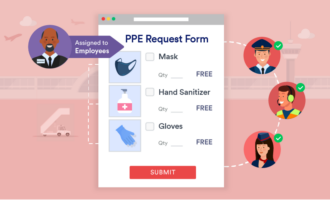




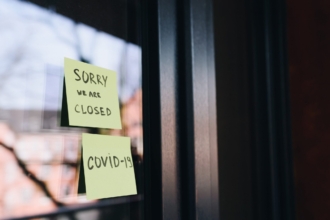







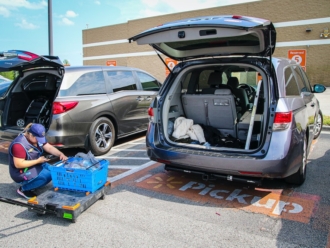






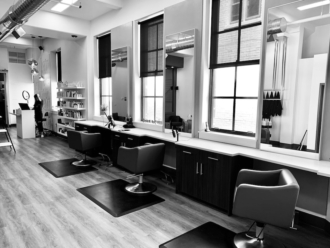




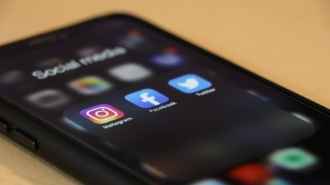







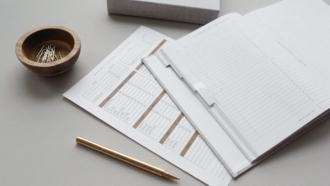

Send Comment:
1 Comments:
More than a year ago
Appreciable, Keep those posts coming!Its amazing. The top-notch and preeminent Mobile App Development Company of usa with its global presence, “Apps On Demand” is first-rate choice of the clients worldwide. Get in touch with us to share your vision and app ideas so that we help you enter the app market and generate revenue.
Know more here: On Demand Massage App Development Company